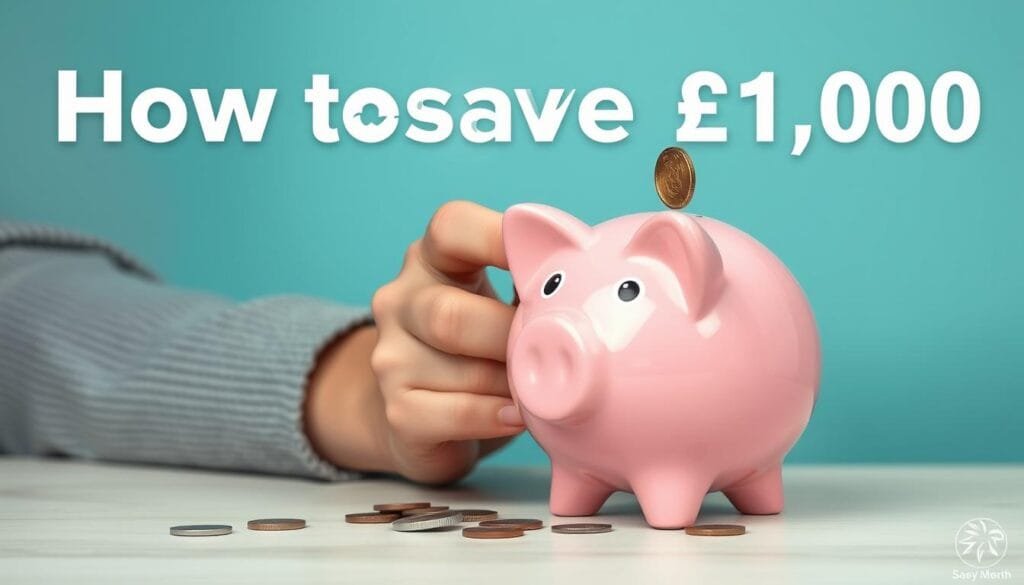A car purchase, whether new or used, can be a significant financial commitment. People have been buying used cars more frequently in recent years. The cost of used cars is lower than a brand-new vehicle, which can be even more expensive. Instead of financing with a loan, which includes interest, saving up for a car might be a better option. This guide will show you how to save for a car, how much you should aim to save, how long it might take, and why a high-interest savings account is a useful tool to help you reach your goal.

Key Takeaways
- Lower Costs: Saving for a car means you may avoid needing a loan, or at least reduce the amount you need to borrow, lowering your monthly repayments.
- Setting Goals: Your savings target will depend on the type of car you want and whether you’re saving to pay for it outright or just for the deposit.
- Savings Accounts: Opening a competitive savings account can help you maximise your car fund. Compare accounts to find the best one for your needs.
Why Should You Save for a Car?
Saving up for a car allows you to avoid or reduce loan interest, which can significantly lower the overall cost of the vehicle. The more you save, the less you’ll need to borrow, leading to smaller monthly payments or even paying for the car outright. Even if you’re saving for a deposit rather than the full price, a larger deposit means smaller loan repayments and potentially lower interest costs.
How Much Should You Save?
The price of a used car in the UK averages around £17,641* as of October 2023, making it a sizable financial commitment. Your savings goal will depend on the car’s age, type, and whether you’re aiming to cover the full amount or just the deposit. Most deposits range from 10-20% of the car’s purchase price, so that’s a good initial target.
When setting your savings goal, consider your monthly income and expenses to find an achievable amount to save each month. Don’t forget to factor in future costs like insurance, fuel, and vehicle tax, as these will also impact your budget.
How Long Will It Take to Save for a Car?
The time it takes depends on how much you can save each month. Start by calculating your monthly income and expenses to determine a realistic savings rate. Setting a timeline based on your savings goal can help keep you motivated.
If you already have some savings, you may reach your goal faster. The type of savings account you choose can also impact how quickly your savings grow. Fixed-rate bonds, for example, offer higher interest if you can lock away your money for a set period.
Best Ways to Save for a Car
Starting early is key to saving efficiently for a car. The sooner you begin, the more you can save, potentially reducing the need for a loan. Cut back on unnecessary expenses, like dining out, to boost your savings.
Consider opening a savings account with a competitive interest rate. This will help maximise your savings, allowing you to earn more on the money you set aside.
Choosing the Right Savings Account
To save effectively for a car, compare savings accounts to find one that fits your needs. If you need flexibility, consider an easy-access account. For higher interest and less temptation to withdraw, a fixed-rate bond could be ideal.
If you have a lump sum and wish to secure it for a specific period, fixed-rate bonds can be beneficial. Easy-access accounts are better if you need more immediate access to your funds.
Open a Savings Account Today
If you’re ready to start saving for a car, opening a dedicated savings account can help you stay on track. Platforms like Raisin UK offer access to competitive savings accounts from various banks.
By comparing your options and choosing the right account, you can streamline your path to buying a car while making your money work harder for you.
Should I Save or Take Out a Loan?
While loans can offer a quicker path to buying a car, saving upfront has significant financial benefits. By avoiding loan interest, you reduce the overall cost of the vehicle. Even saving for a larger deposit can drastically lower your monthly repayments and total interest.
If you do opt for a loan, compare lenders carefully to find the best interest rates and terms. However, saving in advance remains the most cost-effective strategy.
Additional Costs to Consider
When saving for a car, it’s not just the purchase price you should plan for. Factor in ongoing costs like insurance, fuel, road tax, and maintenance. Different cars come with varying costs, depending on their fuel efficiency and condition.
Considering these additional expenses in your savings plan ensures you’re financially prepared, not just for the purchase but for the long-term ownership of the vehicle.
Establishing a clear strategy and setting reasonable savings targets is crucial if one is to save effectively for a car in the UK. Here’s a methodical way to negotiate this process.
Establish Your Budget
Depending on the type—small, medium, or SUV—the average cost of a car in the UK falls from £12,000 to £36,000 [1][2].
As for
Little automobile, say like Hyundai i10: £13,430
Medium car: £18,855, like Volkswagen Polo
SUV (like Nissan Qashqai): £25,506
- Plan a Target Savings: Try for a 10 to 20 percent deposit on the car. For a car valued at £15,000, for example, a 20% deposit would be £3,000 [1].
Prepare a savings plan.
- Compute Monthly Savings: Calculate your monthly savings depending on your income and spending. Generally speaking, you should save about twenty percent of your monthly salary [5].
If you wish to purchase a car valued at £15,000 and save £3,000 over 12 months, you will need to save £250 every month [2].
Choose the correct savings account.
Look for high-interest savings accounts to maximise your savings [2][4]. These accounts provide competitive rates. Without compromising your cash, this can help increase your savings more quickly.
Fixed-term accounts may provide better interest rates than easy-access accounts if you can commit your money for a designated period—say, six months to five years [4].
Control Spending and Increase Savings
- Trim Your Spending: Find places you might cut back, such as subscriptions or dining out. Using cash-only spending or no-spend days could also help raise your savings rate [1][3].
To guarantee you regularly save [3][5], set up automatic transfers from your checking account to your savings account straight after your pay cheque.
Monitor Progress and Make Adjustments as Needed
- Check Your Savings Often: Evaluate your progress towards your goal on a regular basis and adjust your plan of action if necessary. Consider increasing your monthly contributions if you find that you can save more in some months [3].
Establishing small goals will keep you motivated as you work towards the bigger goal of buying a car [5].
You will be well on your way to successfully and efficiently saving for a car in the UK if you follow these tips.
Saving for a car may take time, but it can save you money in the long run. You can start small, like saving £1000 in 30 days. Then, you can increase the savings amount. You can also use the budget calculator to see where your money is going. By starting early, setting realistic goals, and choosing the right savings account will put you in a strong position to buy a new or used car without unnecessary financial stress.
Create a dedicated savings plan today to take control of your finances and avoid the burden of high-interest loans.
Citations
[1] https://carplus.co.uk/magazine/car/how-to-save-for/
[2] https://www.raisin.co.uk/savings/how-to-save/saving-for-a-car/
[3] https://www.moneyhelper.org.uk/en/everyday-money/buying-and-run-a-car/saving-money-for-a-car
[4} If saving for a car, https://www.postoffice.co.uk/savings-accounts/guides
5 [5] https://www.loqbox.com/en-gb/blog/car-savings-money
6 https://www.rac.co.uk/drive/advice/know-how/money-saving-motoring-tipping/
[7} https://www. Cashfloat.co.uk/blog/money-saving/cut-car-costs/







